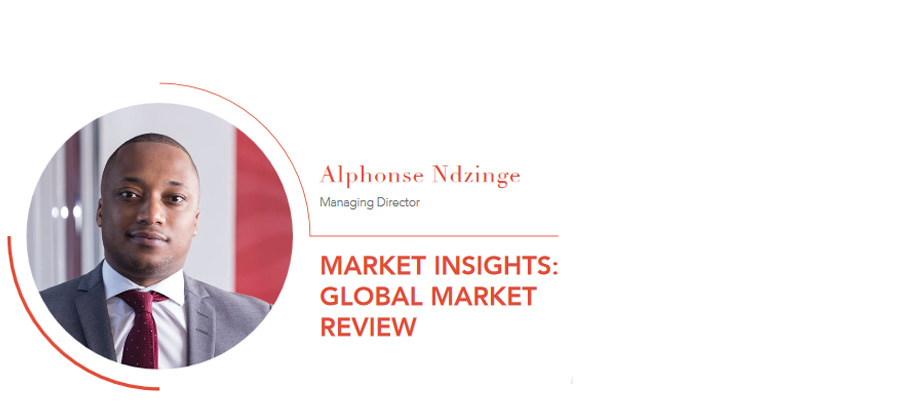Market Insights: Global Market Review

The first quarter of 2020 was completely engulfed with the impact of theCOVID-19 outbreak and its subsequent spread. The economic effects of stifled global business supply chains, canceled events and travel plans,and an endangered workforce were not lost on the financial world and global capital markets.
In local currency terms, Global Equities were incredibly volatile during the period and closed the quarter down 21.3%, the most since the Global Financial Crisis (GFC). MSCI Developed Markets and MSCI Emerging Markets were down 21.0% and 23.6% respectively.
South African assets and the Rand were hit harder by the global sell-off than most emerging markets. This was due to the already-fragile state of the economy. However,Pula weakness from the Rand sell-off helped to cushion the decline of international asset prices.
The price of Brent crude oil was hammered by both expectations of slowing demand and the start of a price war between OPEC and Russia,in which Russia refused to agree with OPEC’s demands to lower its production targets to prevent oversupply. The oil price plummeted by 65.6% during the quarter, starting at approximately US$67 per barrel and then hitting a low of under US$25 per barrel before rebounding to end March at around US$34per barrel.
Around the world, both monetary and budgetary policymakers launched aggressive measures to avoid a credit crisis in addition to the ongoing humanitarian crisis to protect labour markets and support a demand-driven recovery. Policymakers turned to a ‘whatever it takes’ approach. For instance, the US Federal Reserve not only implemented its GFC playbook, but also took a chapter from the European Central Bank by preparing to become both the lender of last resort for the economy as well as the buyer of last resort in bond markets. Initially, global bonds rose sharply in response to falling interest rates and expectations of further rate cuts. Citi World Government Bond Index closed the quarter up 2.0%
The outlook for the global economy has deteriorated significantly during the last month, given the ongoing severity and reach of the COVID-19 pandemic.
A severe downturn is already evident across all developed countries. A gradual stabilisation and recovery are only expected in the second half of the year. Notably, there are already early signals of a recovery building in China.
We expect to see a reduction in market volatility from April, compared to the extreme levels seen in March, in response to significant fiscal and monetary stimulus.That said, uncertainties prevail as long as the COVID-19 contagion has not reached a peak in major countries. Given the nature of this shock and the fact that there is no historical precedent, economic growth forecasts remain highly fluid and are subject to significant downside risks.
They will mostly depend on the actual depth and duration of the economic downturn. There is no doubt that the containment and social distancing measures implemented will have a huge and negative impact on macro economic fundamentals.

Rest assured that we continue to seek to manage risks as well as exploiting opportunities presented by the shifting landscape in global markets, especially as uncertainty about the medium-term outlook remains high. Active and disciplined risk management is critical in the environment. This is in line with the Kgori Capital philosophy and investment approach, one which clients continue to trust and rely upon, as backed by experience, insight and expertise, and firmly buttressed by our PRIDE Values.
Click here to read full article
Alphonse Ndzinge
Managing Director
